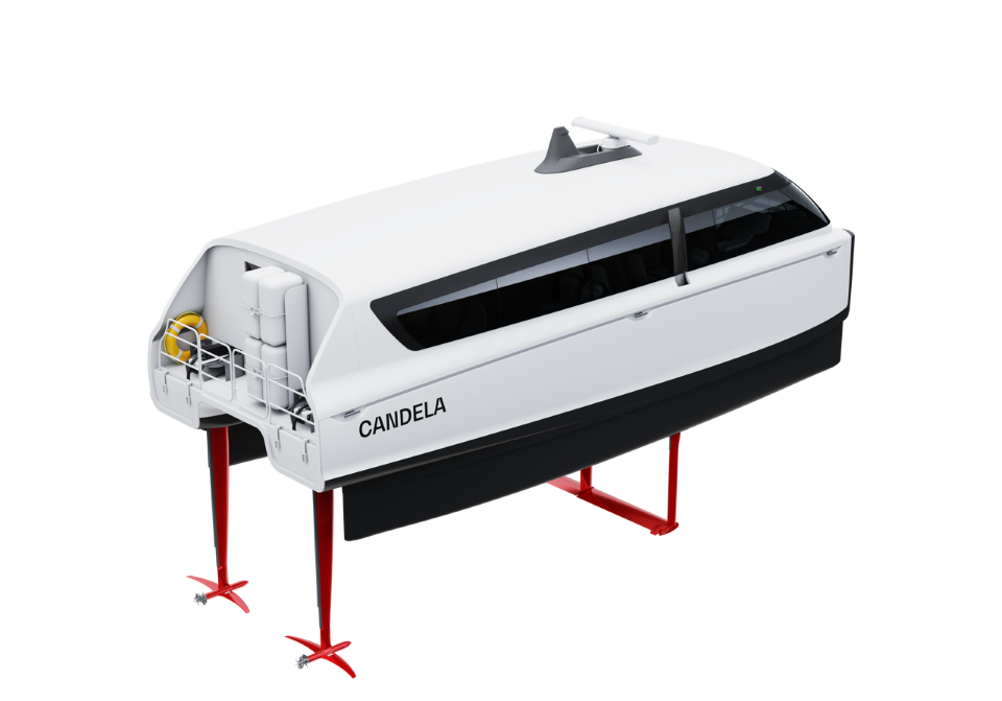The Candela P-12, zero emission, 12 metre passenger shuttle has been designed to enable higher journey frequencies and increase utilization across urban water transit networks.
A full carbon fibre and epoxy construction results in a low vessel weight that allows Candela to provide operators with capacity for 30 passengers and a range of up to 60 nautical miles at 25 knots. Intended to replace larger, slower, fossil-fuelled ships, the P-12 uses 80% less energy than a conventional ferry whilst producing no local emissions and removing the risk of fuel or oil spillages.
The P-12 has been developed using the same lightweight, infused composite, foiling DNA for Candela’s earlier C-7 and C-8 leisure craft and is built using the same high-performance DNV-GL type approved Sicomin resins and adhesives as the previous models. Sicomin’s SR1710 epoxy infusion resin produces extremely high laminate mechanical properties and delivers excellent performance in hot and wet conditions, critical for such a lightweight foiling craft.

Sicomin’s premium epoxy adhesive, Isobond SR7200HTG is also used extensively in the P12 construction for bonding of the carbon fibre hull’s internal structure and final assembly of the vessel’s composite components. Suitable for both thick and thin bond lines, SR7200HTG provides superior bonding performance and is particularly resistant to micro-cracking in long term fatigue.
“Sicomin epoxies have helped us create the lightweight structures that give Candela vessels their game changing performance,” said Karl Fägersten, chief procurement officer at Candela. “Thanks to this, we can provide fast and cost effective, more comfortable, zero emission journeys on our waterways.”

